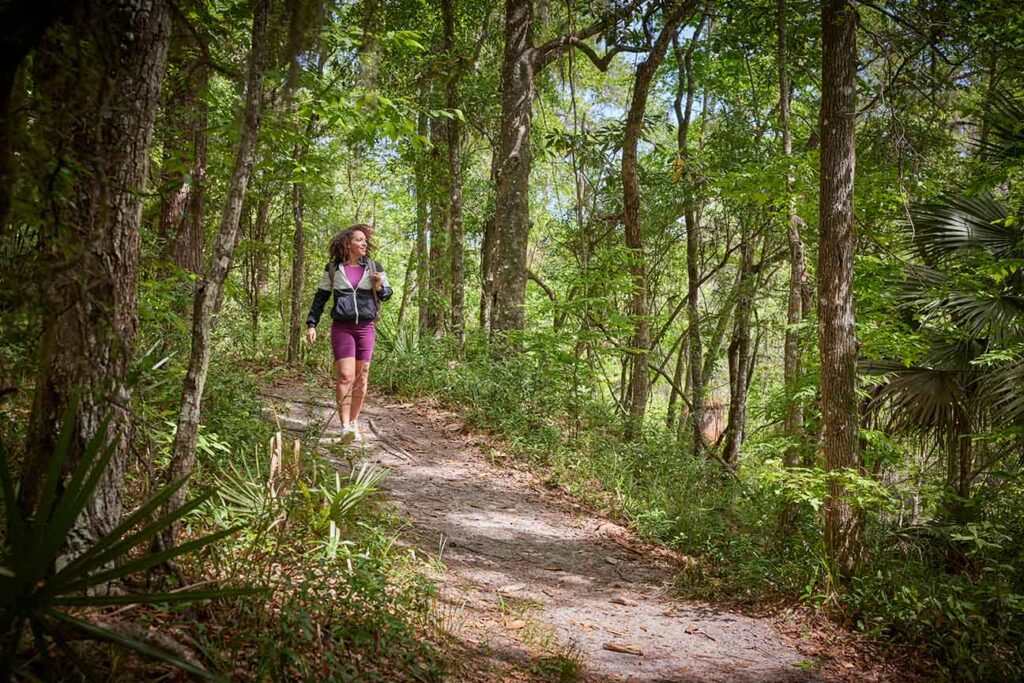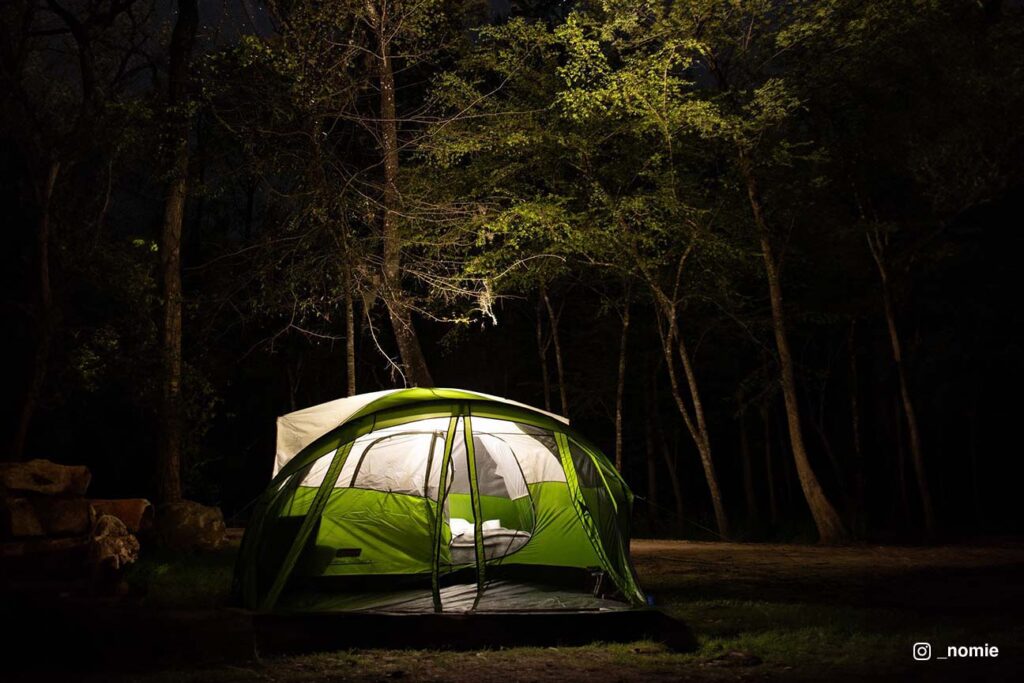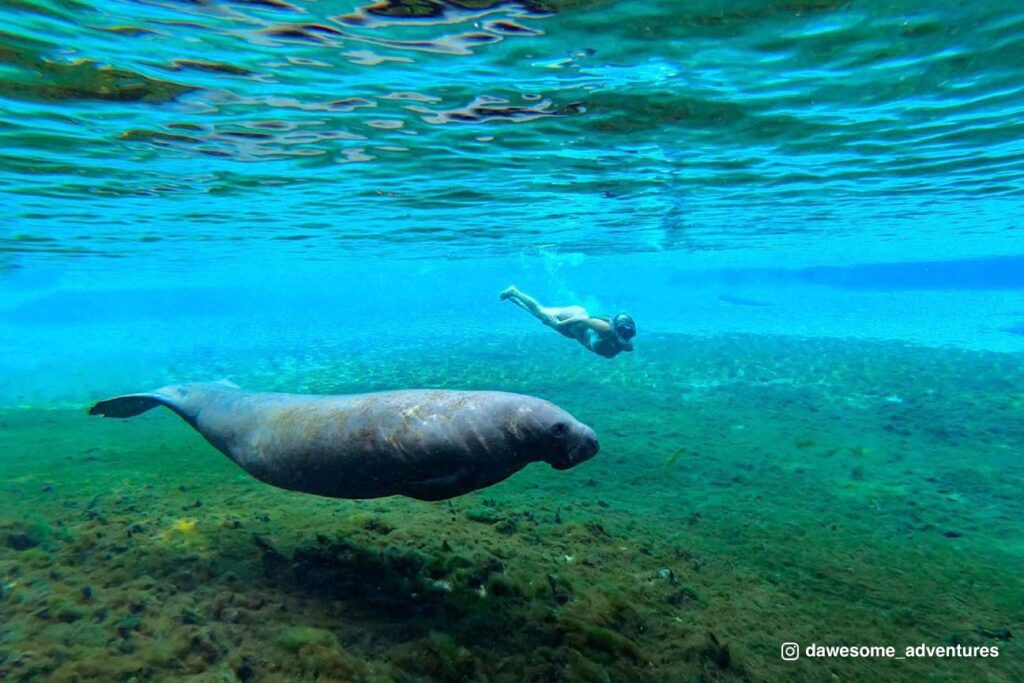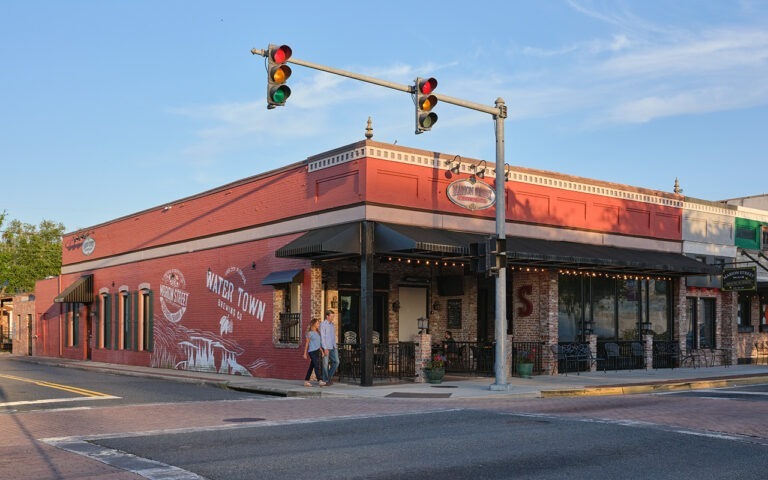Lake City–Florida’s Springlands is a one-of-a-kind haven for nature lovers, offering a wealth of natural attractions such as Ichetucknee Springs State Park, Big Shoals State Park, Osceola National Forest, Falling Creek Falls, Rum Island Spring and Park, and O’Leno State Park.
To ensure these beautiful places remain protected and accessible for future generations, it’s crucial for visitors to practice responsible tourism by adhering to the principles of “Leave No Trace.” Here’s how you can do your part:
PRINCIPLE #1: PLAN AHEAD AND PREPARE
Planning ahead is vital when visiting Lake City’s natural attractions. For example, check park websites for seasonal hours, trail maps, trail and road closures, and any alerts about wildlife or weather conditions.
For Ichetucknee Springs, reserve tubing or paddling online to secure a spot, especially during summer. Also, please remember that pets are not allowed on trails near swimming areas or in the water anywhere within the park.
If you plan to kayak or canoe at Big Shoals State Park, you’ll want to verify water levels by contacting the ranger station. Keep in mind that the park closes the canoe launch to visitors and campers when the water level exceeds 62 feet.
No matter where you go, you won’t want to forget essentials like insect repellent, sunscreen, and plenty of water. By preparing thoroughly, you can ensure a smooth, enjoyable, and eco-friendly adventure in Florida’s Springlands!

PRINCIPLE #2: TRAVEL & CAMP ON DURABLE SURFACES
When exploring the Lake City area, it’s essential to travel and camp on durable surfaces to protect the environment. Hikers should stick to established trails instead of creating their own pathways to prevent erosion and avoid disturbing the indigenous vegetation. For an eco-friendly experience at the springs, avoid vegetated areas and keep fins off the bottom to protect the diverse plant life and wildlife habitat.
While looking for a spot to set up your campsite at places like Ichetucknee Springs Campground or O’Leno State Park, make sure to choose bare ground or gravel. You should always camp at least 200 feet away from water sources to protect riparian areas and help maintain nearby wildlife’s access to water.
PRINCIPLE #3: DISPOSE OF WASTE PROPERLY
You may have heard the famous phrase, “Take only memories, leave only footprints.” With this in mind, remember to dispose of waste properly when visiting sites like Osceola National Forest or Rum Island Spring.
To reduce plastic waste, we highly suggest bringing a reusable water bottle instead of a plastic one. Pack reusable bags, utensils, and containers for camping or picnicking to minimize single-use plastic consumption. Additionally, always inquire about recycling options at park entrances or visitor centers and recycle appropriately.
Most importantly, never litter! Ensure that everything you bring into the parks, including trash, leftover food, and litter, makes its way back out with you.
PRINCIPLE #4: LEAVE WHAT YOU FIND
Respect archaeological sites at Ichetucknee Springs, such as the remnants of a 17th-century Spanish mission, by not removing artifacts or disturbing these areas to maintain their historical integrity. Protect natural features in areas like Falling Creek Falls and O’Leno State Park by avoiding picking plants, removing rocks, or altering landscapes.
Whether you’re hiking through the serene trails of Osceola National Forest or swimming in the crystal-clear waters of Ichetucknee Springs, leave behind natural objects like feathers, shells, and flowers. This rule protects the ecosystem and ensures that future visitors can revel in the same breathtaking beauty that makes Lake City–and Columbia County as a whole–so special.

PRINCIPLE #5: MINIMIZE CAMPFIRE IMPACTS
To minimize campfire impacts, follow these specific tips for campsites like O’Leno State Park and Ichetucknee Springs Campground. To prevent uncontrolled fires, begin by always using established fire rings or designated fire areas.
Before lighting a fire in the campfire ring, double-check that there are no burn bans on the park’s website. Keep fires small and manageable, and remember that gathering firewood in Florida State Parks is prohibited. Instead, you’ll need to bring locally sourced firewood with you or purchase firewood at park ranger stations or campground stores.
When you’re done using your campfire, make sure it’s completely extinguished before leaving by pouring water and stirring the ashes. Additionally, consider using a camp stove for cooking to minimize your environmental impact.

PRINCIPLE #6: RESPECT WILDLIFE
We know how exciting it is to spot some of our unique wildlife in their natural habitats, like beavers, otters, wild turkeys, and maybe even a manatee! However, it’s imperative to always maintain a safe distance from all animals and avoid approaching, frightening, or feeding them.
Feeding animals, even small ones, can be harmful as it teaches them to rely on humans for food and can disrupt their ability to survive in the wild. When birdwatching, bring binoculars or a camera with a zoom lens to observe wildlife up close without disturbing their natural behaviors.
PRINCIPLE #7: BE CONSIDERATE OF OTHERS
When exploring Florida’s Springlands, it’s essential to be considerate of other visitors so everyone can have an enjoyable experience. For example, keeping noise levels low helps maintain a peaceful environment while increasing your chances of spotting wildlife!
Use designated trails and launch sites to avoid congestion and always yield to other hikers and paddlers. Moreover, you’ll want to be mindful of personal space, especially in popular areas like Ichetucknee Springs during the summer.
By following the principles of “Leave No Trace,” you contribute to preserving Lake City’s pristine natural areas. Let’s all do our part to keep these environments beautiful and accessible for future generations to enjoy!




